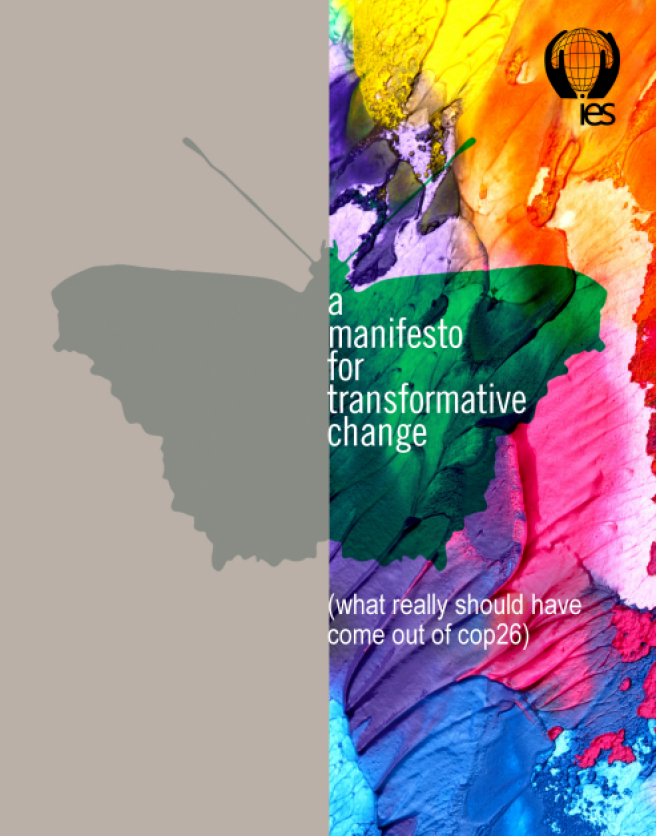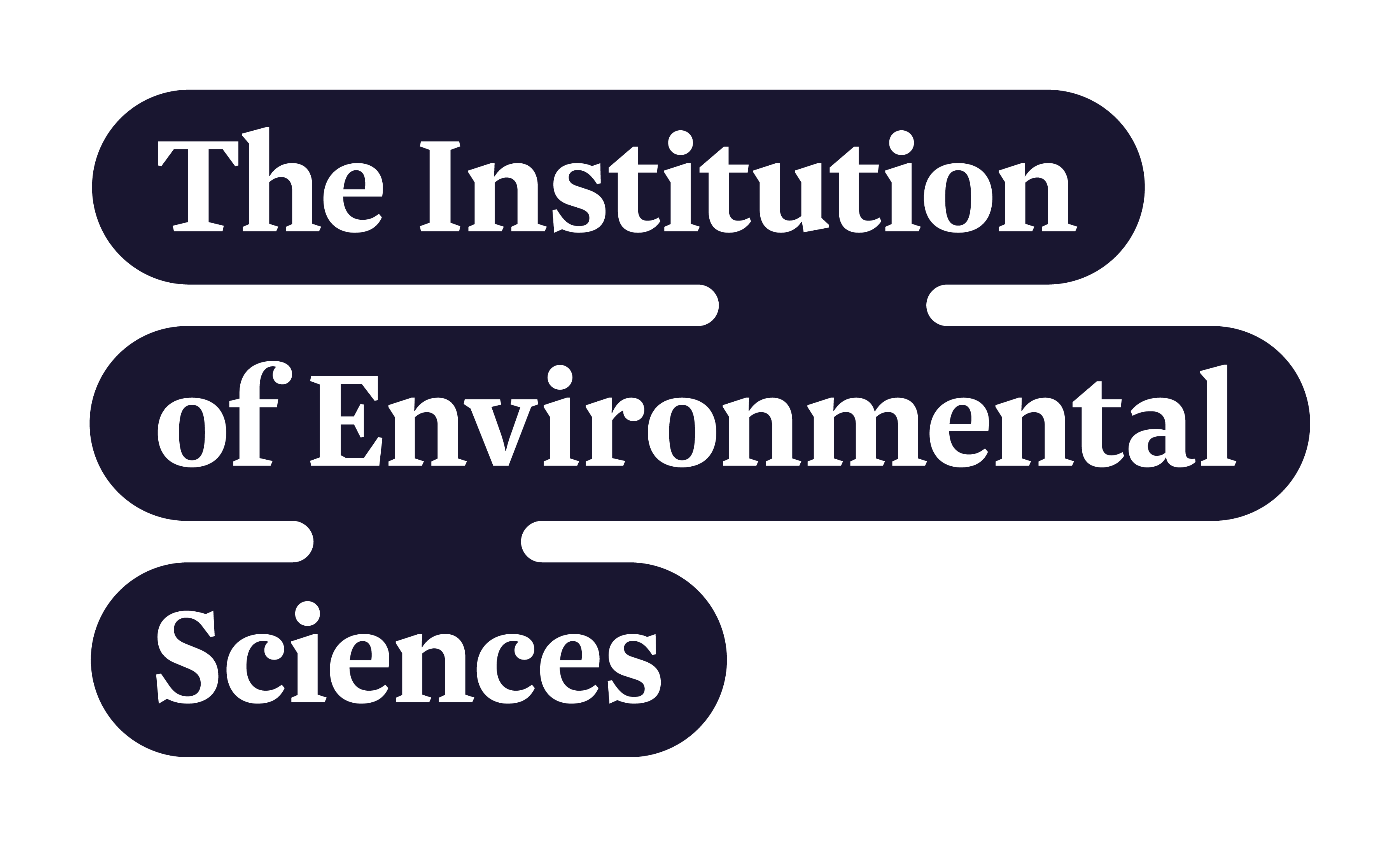A Manifesto for Transformative Change

Humanity faces a profound reality: the decisions we make now will be historic ones, and they will decide the stories we tell to generations to come about the fight against climate change. The UN’s COP26 climate change summit has been portrayed as the ‘final stand’ in that battle, though in reality it will have been the first of many to come as we work to create a better world for nature, people, and the planet.
This manifesto sets out 54 recommendations for global climate action, as well as the analysis and evidence to support them. Aimed at influencing COP26, those recommendations now provide us with an ideal point of comparison between what was achieved at the summit and what still needs to happen.
Climate change has been caused by complex interactions between social, economic, and natural systems. Our response should reflect that, transforming those systems to become more sustainable and employing systems thinking approaches to achieve multiple benefits for the environment, society, and the economy. Science has a crucial role to play by providing the evidence people need to understand the outcomes of different options and the potential to create a future which improves everyone’s lives.
Finance will drive the transition, so the work done at COP26 to begin aligning finance, innovation, and skills must continue. Clear taxonomies and the facilitation of a level playing field will be essential to mobilise the private sector. Businesses can also drive change through new business models, ESG principles, and sector-by-sector strategies, but action must be credible and transparent. As we move on from COP26, sustainable businesses will be rewarded by engaged consumers while those that do not take sustainability seriously will be left behind.
The global community understands the need to transition energy systems away from carbon-intensive production, though different approaches will be required in different places, down to the level of specific localities and communities. Investment is needed to upscale and deliver renewable energy sources and to transfer knowledge between global partners and communities to support the identification of appropriate contextual solutions.
One of the greatest assets in the battle against climate change is an engaged global public that wants to be part of achieving climate ambitions. Not only can communities share evidence of what works on the ground through co-production, they can drive forward change that avoids injustice or economic challenge through ‘just transitions’ and democratic empowerment.
Nature is a complex system which connects to human lives and livelihoods in many ways. To that end, our interactions with nature must reflect the multiple benefits we can achieve from interventions, so multi-functional approaches such as nature-based solutions will be crucial. Fundamental ecological principles, particularly the mitigation hierarchy, must be embedded at every level of action, and humanity must seek a better relationship with the natural world which underpins so many of the ‘ecosystem services’ our society needs.
Design will be crucial to embedding sustainability into our economic systems. Circular economy principles are essential to reaching our climate goals, and businesses must address the unsustainable production and consumption which underpins their business models. Governments and consumers have a key role to play in supporting that transition, with greater transparency, regulation, and consumer choice at the heart of shifting the burden of our economy away from materials and unsustainable pressures on nature.
Adaptation and resilience must be an equal part of our battle against climate change. Even as we push for greater mitigation, we are already faced with changing climates which have real consequences for communities. A systems approach to the built environment and land use is essential to embedding resilience, particularly to systemic risk vulnerabilities and the risk of cascading failures which are likely to increase as we undergo decarbonisation. Our land use and food systems also require transformative change to meet the dual goals of climate mitigation and creating sustainable and resilient food systems.
Science will be at the heart of our action to combat climate change, and innovation is crucial to delivering new solutions and scaling-up existing ones. Both require sufficient funding for research and development, as well as realistic timeframes to achieve what is asked of them. Innovation also requires ‘level playing fields’ to drive private sector action. Robust science based on systematic reviews can communicate the risk and reward associated with different pathways, helping communities to choose the decarbonised future that suits their needs.
Our mobility systems require fundamental change from the design stage to become sustainable, recognising the extent to which demand, affordability, and speed shape those systems. Active travel must become accessible and widespread for shorter journeys. Infrastructure and subsidies must be in place to allow consumers to make sustainable choices for their journeys in both urban and rural contexts. Governments must facilitate the creation of sector-by-sector strategies for decarbonisation, particularly for hard-to-abate sectors such as freight and aviation.
Cities, regions, and Local Authorities will play a crucial role in the transition, as they deliver climate action on the front lines. Knowledge-sharing, monitoring, and innovation all have the potential for transformation across communities and localities, scaling-up change to the national and international levels. Appropriate resources, capacity, and cooperation must be in place to allow those processes of transformation to take place.
When future generations hear stories about the fight against climate change and the role COP26 played in that battle, they cannot be stories of inaction or inertia. As we take the work of COP26 forwards, the stories told by our actions must be about ambition and the commitment to seeing our aspirations materialise through transformative change.
This profound moment in history offers two polarised types of change. The first is climate change, where our inaction leads us on the road to overwhelmed human resilience, degraded natural environments, and an existential threat to our planet. The second is transformative change, where our collective journey of action brings us to a future which is sustainable, resilient, and which meets the needs of global communities that share in the benefits of the natural world.
It is our imperative as those with the power to make historic decisions that we create that better future.
#TransformativeChange
Header image credit: © Isabelle | Adobe Stock


